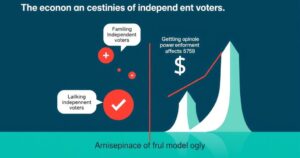Trump’s Visit to Alligator Alcatraz Stirs Controversy and Debate
Trump’s Controversial Visit Sparks Heated Reactions From All Sides
Donald Trump is set to visit a controversial migrant camp, dubbed ‘Alligator Alcatraz’, in Florida this Tuesday. The facility, located in the Everglades, serves as a detention and deportation site for undocumented migrants. Its name is as intriguing as it is unsettling, providing a dramatic backdrop for Trump’s border policies, which appeal to his voter base by glorifying his hardline stance on immigration.
Controversial Facility Faces Backlash from Activists and Locals
The camp’s isolation is being touted by officials as an advantage; it’s surrounded by the wild terrain of Florida, complete with alligators, which press secretary Karoline Leavitt calls a deterrent for escaping detainees. While this raises eyebrows, it also highlights the administration’s strategy to leverage striking imagery for political gain. The camp is expected to house around 5,000 migrants, a move that has drawn criticism from activists concerned about its impact on indigenous rights and environmental concerns.
Political Gains and Messaging Surround Trump’s Immigration Policies
Despite the fuss, Trump sees this visit as a way to solidify his hardline immigration narrative and galvanize support by provoking Democrats. His administration has faced challenges in deportation rates, highlighting that sometimes the perceived need to look tough overshadows the actual effectiveness of policies. Meanwhile, Florida’s Governor Ron DeSantis defended the camp’s conditions as humane and comparable to emergency setups used during hurricane seasons, trying to assuage fears while promoting the initiative.
Dehumanizing Migrant Experience Raises Serious Ethical Questions
The facet of this camp that many critics are concerned about isn’t just political theatrics; it’s the underlying human cost. With a long history of using migrant camps as a political tool, parallels have already been drawn to the dark history of Japanese American internment during World War II. Reports of deaths in ICE custody raise further questions about the treatment of migrants, especially in light of the recent death of 75-year-old Isidro Perez in Miami, which is under investigation for proper medical care oversight.
Statistics Highlight the Complexity Behind Migrant Claims
Furthermore, while Trump’s narrative often paints migrants in a negative light, data shows that the majority of those in custody haven’t committed violent crimes. The rhetoric surrounding the camp may indeed galvanize his base but fails to recognize the complexities of migration and asylum-seeking. Many migrants fleeing perilous conditions aren’t necessarily the criminals that the administration often portrays — adding another layer to an already fraught political conversation about immigration in America.




